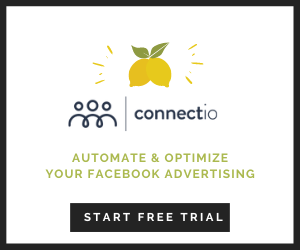Native ads: an ad format that emerged to overcome the shortcomings of display banners and provide contextually relevant ads to visitors now cater to a significant budget of media buyers. It takes a significant share of the ad spend as the market slowly matures for native video, programmatic native and more. As ‘native’ becomes one of the inseparable ad formats for media buyers in 2020, we take a closer look into native advertising best practices for advertisers. We have tried to provide a checklist that would help advertisers like you to setup your native ad campaigns and optimize it for a maximum ROI.
Key Elements to Optimize in Native Ads
In order to maximize your return from native advertising, the first objective as a smart trafficker is to minimize the cost per click. This is fundamentally achieved if you have
- Higher click through rate
- Better engagement with ads
In the following part of the article, we will discuss how you can optimize the click through rate of your native ads and how you can enable better user engagements for your ad copies. These would essentially form the pivot for native advertising best practices since it will be majorly covering the topic in-depth.
Native Advertising Best Practices for Advertisers 2020
Advertisers who are setting up native ad campaigns need to know some of these crucial setting and best practices from day one to have the best ROI for their ad spend.
Titles
For every campaign you create, it is recommended to create at least 3-5 title variations. If your campaign budget is higher, I would suggest you create more title variations and see which is performing best.
Here are the best practices for creating titles for your native ad copies
- Ensure your message is clear and the visitors understand the content in one glance
- Try to use a catch phrase to ensure the visitors click on the ads
- Include an action phrase wherever possible like… check out, take a look, etc. etc.
- Do not make the titles too long
Images
Images do have a high impact on the CTR of the ad. Again, for any campaign, I would recommend using 5 different images which can be related to the objective, title, and text of the campaign. Changing the image can have significant impact on the CTR of the ad and thus it is a good native advertising practice to use 4-5 images for each campaign. You can mix titles and images so that you don’t end up with too many iterations.
Here are the best practices for adding image assets to your native ad copies
- Ensure the image is vibrant and colorful. No one likes a dull image.
- The image needs to contextually fit to title and the landing page’s content.
- The image should be able to catch the first impression and attention of the visitors
- Make sure the content of the image is clutter free
Placements, Targeting, and Devices
Targeting devices (desktop, tablet, and mobile) is a fundamental approach that one should employ. The CPC for desktop is higher when compared with the CPC of mobile traffic. However, the device targeting depends entirely on the type of campaign. Also, you can target specific carrier, data type, and more.
- Setup target locations and block specific locations which you wish to.
- Specify operating systems and connect type.
- Block the low performing publisher IDs once you have sufficient data and confidence to block a publisher ID.
Audience Type
Most of the native advertising platforms offers audience type which ranges for general to affinity categories. Based on the previous interaction with ads and third-party data, these platforms are able to filter under based on their interests and thus you can have granular targeting options. Also, once you’ve a substantial audience subset, you can define ‘look-a-like’ audience [1] that will try to filter the type of audience which is performing best for your current campaign. Other options include marketplace audience, campaign clickers etc.
Here are the best practices for setting your audience type for your ad campaigns
- Start with marketplace audience or network audience since it will give you lower CPCs.
- Once you’ve substantial audience, go with “look-a-like audience”
- Ensure other targeting are set properly.
Click Through Rate
All the above-mentioned factors come down to one fundamental factor which is the click through rate. If the click to impression ration is high, then your ad is performing quite well. You can then simply go ahead a reduce the CPC of the ad and still get clicks at a lower price point. This makes sense because the quality score of your ad is comparatively higher. To generate the same number of clicks, other ads will require much higher impression that yours and this makes the click through rate so much important.
Landing Page Optimization
Optimizing your landing page for better conversions and site speed is extremely crucial. If the landing page is interactive, the overall experience of the user is good and all advertising platforms that this matter into consideration while allocating a temporary CPC for the ads.
Here are the best practices for optimizing the landing page of your campaign
- Ensure the page speed score are in the within the permissible limits for desktop and mobile.
- Cross check all the page elements for possibility of any overlaps
- Ensure fast loading of crucial assets
- Ensure the desirable actions are taken in the landing page.
Tracking Through Google Analytics
There always happen to be some discrepancy between the Google analytics data and the data provided by the native ad platform. This is because both of them track clicks and conversions differently and a disparity is inevitable. However, you should see to minimize the discrepancy. Additionally, analytics will give you data to know the worst performing instances of your campaigns and using the data from analytics you can stop or deactivate those creatives which are showing slow signs of improvement.
Additionally, you have to set goals in GA and in your native ad campaign reports and see what publisher sites are fulfilling the goals. As you optimize your campaign, you need to filter the sites which have higher success rates for the goals you’ve set and should choose those pub IDs.
Campaign Budgets and Bidding
This is one of the most crucial setting and requires an in-depth understanding of the logic in which the CPCs are optimized. You can start with a network average CPC[2] and then optimize it for higher CTRs. This would eventually help you lower the CPC as the campaign optimizes and you can get more number of clicks at the same dollars spent on a daily budget.
We hope these campaign optimization tips for native advertising would help you setup your campaigns and optimize it for higher ROI.
Our 'Handpicked' Tools for Internet Mareters
- Native Advertising Software Tool: Brax, Anstrex
- Facebook Advertising Software Tool: Audiencer, Revealbot, Connectio,
- Social Media Advertising Software Tool: SproutSocial, SocialBee,
- Internet Marketing Software Tools: Semrush, SproutSocial,



I and my team research various media buying platforms and can help you choose the right network; so you could rake in more greenbacks with an increased ROAS. I am just a mail away, so reach out to me if you need assistance with scalable media buying. mail: [email protected]


